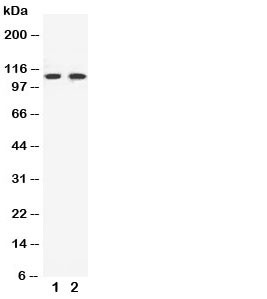Cookie-Einstellungen
Diese Website benutzt Cookies, die für den technischen Betrieb der Website erforderlich sind und stets gesetzt werden. Andere Cookies, die den Komfort bei Benutzung dieser Website erhöhen, der Direktwerbung dienen oder die Interaktion mit anderen Websites und sozialen Netzwerken vereinfachen sollen, werden nur mit Ihrer Zustimmung gesetzt.
Konfiguration
Technisch erforderlich
Diese Cookies sind für die Grundfunktionen des Shops notwendig.
"Alle Cookies ablehnen" Cookie
"Alle Cookies annehmen" Cookie
Ausgewählter Shop
CSRF-Token
Cookie-Einstellungen
FACT-Finder Tracking
Individuelle Preise
Kundenspezifisches Caching
Session
Währungswechsel
Komfortfunktionen
Diese Cookies werden genutzt um das Einkaufserlebnis noch ansprechender zu gestalten, beispielsweise für die Wiedererkennung des Besuchers.
Facebook-Seite in der rechten Blog - Sidebar anzeigen
Merkzettel
Statistik & Tracking
Endgeräteerkennung
Kauf- und Surfverhalten mit Google Tag Manager
Partnerprogramm

| Artikelnummer | Größe | Datenblatt | Manual | SDB | Lieferzeit | Menge | Preis |
|---|---|---|---|---|---|---|---|
| NSJ-R30645 | 100 µg | - | - |
3 - 10 Werktage* |
755,00 €
|
Bei Fragen nutzen Sie gerne unser Kontaktformular.
Bestellen Sie auch per E-Mail: info@biomol.com
Größere Menge gewünscht? Bulk-Anfrage
Bestellen Sie auch per E-Mail: info@biomol.com
Größere Menge gewünscht? Bulk-Anfrage
0.5mg/ml if reconstituted with 0.2ml sterile DI water. Ephrin Receptor B3, is also known as human... mehr
Produktinformationen "Anti-EphB3 Ephrin Receptor B3"
0.5mg/ml if reconstituted with 0.2ml sterile DI water. Ephrin Receptor B3, is also known as human embryo kinase2 (HEK2) or Eph-like tyrosine kinase 2 (ETK2) is a member of the EPH/ELK family of tyrosine kinases. The gene encodes a 998-amino acid polypeptide having a single putative transmembrane domain, a secretory signal sequence, and two fibronectin repeats. The gene is mapped to human chromosome 3q21-qter. EphB3 interacts with two ligands of EPH-related kinases (LERKs), LERK2/EFNB1 and LERK5/EFNB2. Coincubation of EphB3- and LERK2-expressing cells induces cell-cell adhesion and aggregation. Additionally, coexpression of the two proteins results in reduced kinase activity of EphB3. Protein function: Receptor tyrosine kinase which binds promiscuously transmembrane ephrin-B family ligands residing on adjacent cells, leading to contact-dependent bidirectional signaling into neighboring cells. The signaling pathway downstream of the receptor is referred to as forward signaling while the signaling pathway downstream of the ephrin ligand is referred to as reverse signaling. Generally has an overlapping and redundant function with EPHB2. Like EPHB2, functions in axon guidance during development regulating for instance the neurons forming the corpus callosum and the anterior commissure, 2 major interhemispheric connections between the temporal lobes of the cerebral cortex. In addition to its role in axon guidance plays also an important redundant role with other ephrin-B receptors in development and maturation of dendritic spines and the formation of excitatory synapses. Controls other aspects of development through regulation of cell migration and positioning. This includes angiogenesis, palate development and thymic epithelium development for instance. Forward and reverse signaling through the EFNB2/EPHB3 complex also regulate migration and adhesion of cells that tubularize the urethra and septate the cloaca. Finally, plays an important role in intestinal epithelium differentiation segregating progenitor from differentiated cells in the crypt. [The UniProt Consortium]
| Schlagworte: | Anti-EK2, Anti-ETK2, Anti-hEK2, Anti-EPHB3, EC=2.7.10.1, Anti-EPH-like kinase 2, Anti-Embryonic kinase 2, Anti-Ephrin type-B receptor 3, Anti-EPH-like tyrosine kinase 2, Anti-Tyrosine-protein kinase TYRO6, EphB3 Antibody Ephrin Receptor B3 |
| Hersteller: | NSJ Bioreagents |
| Hersteller-Nr: | R30645 |
Eigenschaften
| Anwendung: | WB, IHC (paraffin) |
| Antikörper-Typ: | Polyclonal |
| Konjugat: | No |
| Wirt: | Rabbit |
| Spezies-Reaktivität: | human, mouse, rat |
| Immunogen: | An amino acid sequence from the C-terminus of human Eph receptor B3 (SIQDMRLQMNQTLPVQV) was used as the immunogen for this EphB3 antibody (100% homologous in human, mouse and rat). |
| Format: | Purified |
Datenbank Information
| KEGG ID : | K05112 | Passende Produkte |
| UniProt ID : | P54753 | Passende Produkte |
| Gene ID | GeneID 2049 | Passende Produkte |
Handhabung & Sicherheit
| Lagerung: | +4°C |
| Versand: | +4°C (International: +4°C) |
Achtung
Nur für Forschungszwecke und Laboruntersuchungen: Nicht für die Anwendung im oder am Menschen!
Nur für Forschungszwecke und Laboruntersuchungen: Nicht für die Anwendung im oder am Menschen!
Hier folgen Informationen zur Produktreferenz.
mehr
Hier kriegen Sie ein Zertifikat
Loggen Sie sich ein oder registrieren Sie sich, um Analysenzertifikate anzufordern.
Bewertungen lesen, schreiben und diskutieren... mehr
Kundenbewertungen für "Anti-EphB3 Ephrin Receptor B3"
Bewertung schreiben
Loggen Sie sich ein oder registrieren Sie sich, um eine Produktbewertung abzugeben.
Zuletzt angesehen



